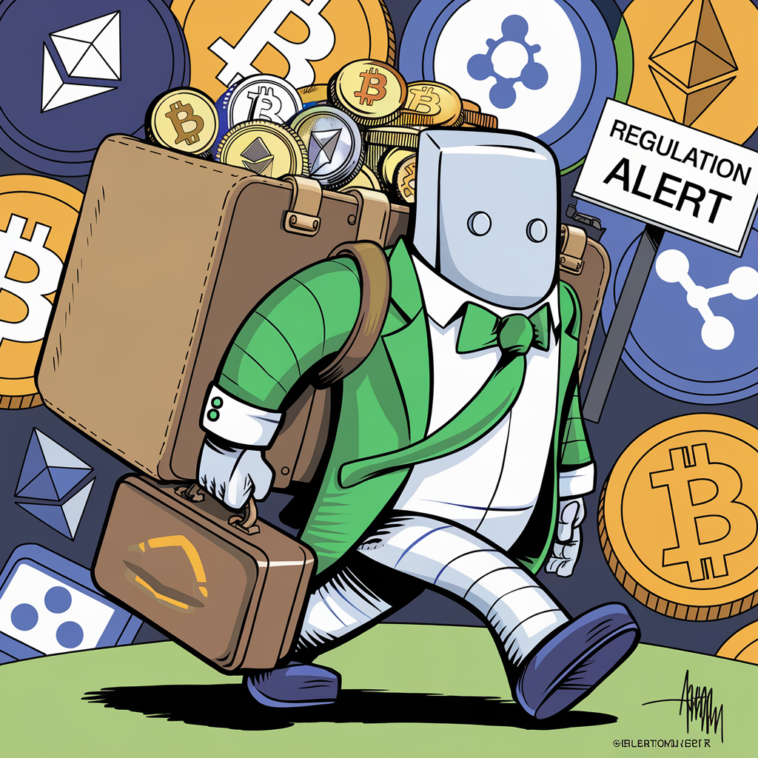A significant event to Filipino investors was the exit of eToro from the Philippine market coupled with the latter ending its services for cryptocurrencies as well. This came in line with an advisory of the Philippine Securities and Exchange Commission stating issues on the proper license for the said company in engaging its business within the country.
SEC Advisory and eToro’s Licensing Issues
Recently, the Securities and Exchange Commission of the Philippines released a public advisory warning Filipino investors against the unauthorized activities in the country by eToro. It says that eToro has been conducting businesses without the necessary licenses issued to engage in investment and crypto trading services involving stocks, commodities, and cryptocurrencies, says the SEC. Registration of eToro as Licensed Investment Company or Broker under the Securities Regulation Code In the Philippines, eToro is not registered. As a result, it violates the Securities Regulation Code of this country. All parties who engage in offering securities or investment opportunities must be registered and licensed with the SEC to protect investors and ensure that their operations comply within the country’s territorial jurisdiction. The advisory put the public on guard because, as of this posting, eToro and other unregistered trading platforms are not covered by the regulations of the Philippine government.
eToro Will Shut Down its Philippines Operation
The threat of regulatory challenges that this piece would pose made eToro decide to exit the Philippine market. The company began sending notifications to its users regarding the procedure to close their accounts and withdraw money before the operations are officially shut down. New trades cannot be initiated at present, but management and closure of positions can be managed during the winding-down phase. This sudden pullout of eToro suggests that the latter could not get the necessary licenses for continuing its services legally in the country. The authorities have tightened scrutiny lately, especially about digital platforms transacting in cryptocurrencies, to be on top of anti-money laundering and consumer rights legislations.
Implications for Filipino Investors and Market Reactions
These developments in the SEC advisory and eToro’s decision to withdraw its services from this country have created uncertainty among Filipino investors who relied on the platform for their traditional and cryptocurrency investments. eToro’s crypto services, most popular among Filipino traders, were no longer allowed in the country, and they were left at their wits’ end finding other platforms to offer similar services. Domestic platforms like Coins.ph and PDAX will capitalize on this migration to increase their user base from the Filipino clients, but they will certainly not offer as many features that eToro has used over the years. International exchanges like Coinbas and Bybit might be popular but will face local regulatory hurdles unless they are found to be complying with the laws in the country of their operation.
SEC Tightens Noose for Unlicensed Platforms
The advisory from the SEC regarding eToro forms part of a more comprehensive drive to force unlicensed financial and investment platforms to close shop within the country. In recent months, the SEC has heightened its efforts to regulate the rapidly growing cryptocurrency and online trading markets, as these platforms offering securities and investments start operating within bounds while being transparent. One of them is the agency being closely watchful on the platforms targeting Filipino investors without proper authorization, reminding the public to scrutinize legitimacy in the company that engages in such an investment activity. The SEC had been very proactive in posting advisories and warnings against those entities that are still not complying with that intention of never letting fraud and scams pass unchecked to investors.
What’s in store for eToro?
The withdrawal of eToro from the Philippine market is symptomatic of the rising complexity of crossing diversified countries’ regulatory frameworks. Since the system is still permitted to operate within other global markets, this withdrawal from the Philippines serves as an alert for an increase in compliance in the expansion of digital financial services. Meanwhile, for Filipino investors, they have to be located to licensed platforms that fall within the country’s regulatory requirements by the Philippine government.
One of the issues that the SEC has to overcome would be the regulatory problem that the global investment platforms face and the lack of proper operating license of eToro. Once this leaves the market, it will call out the Filipino traders and investors to be cautious in using only licensed platforms because they are much safer and compliant with local regulations.




